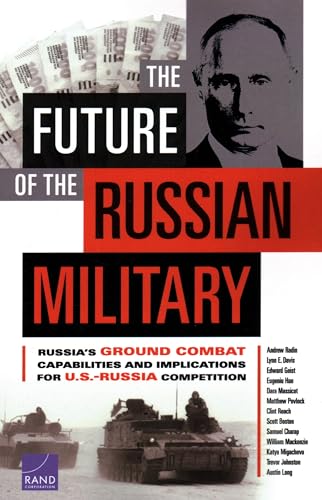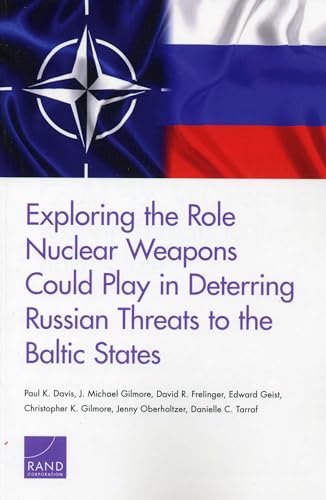edward geist (12 Ergebnisse)
Suchfilter
Produktart
- Alle Product Types
- Bücher (12)
- Magazine & Zeitschriften (Keine weiteren Ergebnisse entsprechen dieser Verfeinerung)
- Comics (Keine weiteren Ergebnisse entsprechen dieser Verfeinerung)
- Noten (Keine weiteren Ergebnisse entsprechen dieser Verfeinerung)
- Kunst, Grafik & Poster (Keine weiteren Ergebnisse entsprechen dieser Verfeinerung)
- Fotografien (Keine weiteren Ergebnisse entsprechen dieser Verfeinerung)
- Karten (Keine weiteren Ergebnisse entsprechen dieser Verfeinerung)
- Manuskripte & Papierantiquitäten (Keine weiteren Ergebnisse entsprechen dieser Verfeinerung)
Zustand Mehr dazu
- Neu (9)
- Wie Neu, Sehr Gut oder Gut Bis Sehr Gut (Keine weiteren Ergebnisse entsprechen dieser Verfeinerung)
- Gut oder Befriedigend (3)
- Ausreichend oder Schlecht (Keine weiteren Ergebnisse entsprechen dieser Verfeinerung)
- Wie beschrieben (Keine weiteren Ergebnisse entsprechen dieser Verfeinerung)
Einband
Weitere Eigenschaften
- Erstausgabe (1)
- Signiert (Keine weiteren Ergebnisse entsprechen dieser Verfeinerung)
- Schutzumschlag (1)
- Angebotsfoto (2)
Sprache (2)
Gratisversand
Land des Verkäufers
Verkäuferbewertung
-
The Future of the Russian Military: Russiaâs Ground Combat Capabilities and Implications for U.S.-Russia Competition
Sprache: Englisch
Verlag: RAND Corporation (edition ), 2019
ISBN 10: 1977400744 ISBN 13: 9781977400741
Anbieter: BooksRun, Philadelphia, PA, USA
Paperback. Zustand: Very Good. It's a well-cared-for item that has seen limited use. The item may show minor signs of wear. All the text is legible, with all pages included. It may have slight markings and/or highlighting.
-
paperback. Zustand: Very Good.
-
Salud y Shalom: Conversaciones con excombatientes judíos de la brigada internacional Abraham Lincoln
Anbieter: AG Library, Malaga, MA, Spanien
Zustand: New. Idioma/Language: Español. Hace más de 30 años se recogieron, a lo largo y ancho de los Estados Unidos, los testimonios de numerosos excombatientes judíos de la brigada Abraham Lincoln, sus vivencias en la Guerra de España y sus itinerarios de vida no solo como judíos de origen yiddish procedentes de Europa Oriental, sino también como militantes de organizaciones políticas y sindicales de izquierda. En un interesante recorrido autobiográfico de cada uno y cada una de los entrevistados, este libro es un homenaje a su participación en el conflicto español como combatientes antifascistas, además de una pequeña radiografía de lo que suponía ser judío y activista político en los Estados Unidos durante los años 30. A través de sus recuerdos y reflexiones sobre el pasado, los y las protagonistas anónimas de aquellas experiencias personales nos introducen en una historia poco conocida a ambos lados del Atlántico y ligada a acontecimientos que la mayoría de las veces se relatan sin mencionar a sus protagonistas ?anónimos? Las conversaciones grabadas a principios de los años 90 por el profesor Joseph Butwin, coeditadas hoy por Edward Baker y Anthony Geist, pretenden rescatar del olvido a cinco de aquellos militantes estadounidenses, abriendo así un espacio adicional a la democratización del conocimiento del pasado. Un primer y gran paso en la divulgación de la Historia Pública en España. *** Nota: Los envíos a España peninsular, Baleares y Canarias se realizan a través de mensajería urgente. No aceptamos pedidos con destino a Ceuta y Melilla.
-
Mitigating Challenges to U.S.-Russia Strategic Stability
Anbieter: Revaluation Books, Exeter, Vereinigtes Königreich
EUR 32,26
EUR 11,48 shipping
Versand von Vereinigtes Königreich nach USAAnzahl: 1 verfügbar
In den WarenkorbPaperback. Zustand: Brand New. 72 pages. 8.75x5.75x0.25 inches. In Stock.
-
Deterrence Under Uncertainty: Artificial Intelligence and Nuclear Warfare
Anbieter: Revaluation Books, Exeter, Vereinigtes Königreich
EUR 36,74
EUR 11,48 shipping
Versand von Vereinigtes Königreich nach USAAnzahl: 1 verfügbar
In den WarenkorbPaperback. Zustand: Brand New. 288 pages. 6.22x0.63x9.29 inches. In Stock.
-
Exploring the Role Nuclear Weapon's Could Play in Deterring Russian Threats to the Baltic States
Sprache: Englisch
Verlag: RAND National Defense Research Institute, Santa Monica, CA, 2019
ISBN 10: 1977402151 ISBN 13: 9781977402158
Anbieter: Ground Zero Books, Ltd., Silver Spring, MD, USA
Erstausgabe
Trade paperback. Zustand: Very good. Zustand des Schutzumschlags: No DJ issued. Presumed First Edition, First printing. xvii, [1], 133, [1] pages. Footnotes. Figures. Tables. Appendices. References. Minor cover soiling noted. Despite its global advantages, the North Atlantic Treaty Organization (NATO) s current deterrent posture in the Baltic states is militarily weak and generally questionable. A Russian invasion there would almost surely capture some or all of those states' capital cities within a few days, presenting NATO with a fait accompli. This report examines what role nonstrategic nuclear weapons could play in deterring such an invasion. To achieve deterrence-favorable conditions, NATO would need to consider substantially enhancing and improving its conventional forces based in and near the Baltic states; fielding some limited nonstrategic nuclear weapons feasible for use throughout a conflict, including very early in the conflict; and going through the lengthy and difficult political and military peacetime processes necessary to make prompt response to warnings feasible and credible. What would be an action plan to develop and practice rapid-decision and rapid-action processes to prevent a surprise fait accompli despite major deception operations by Russia (e.g., using exercises to cover preparations for invasion)? How would wargaming results change if the initiating scenario resembled the little green men (masked soldiers in unmarked uniforms) employed by Russia in Ukraine in 2014? Are there ways that limited nuclear use by NATO could be given military value despite Russian quantitative escalation dominance? What options exist for geographically horizontal escalation and for escalation into other domains? Despite its global advantages, the North Atlantic Treaty Organization (NATO)'s current deterrent posture in the Baltic states is militarily weak and generally questionable. A Russian invasion there would almost surely capture some or all of those states' capital cities within a few days, presenting NATO with a fait accompli. The United States is currently considering tailored deterrence strategies, including options to use nuclear weapons to deter Russian aggression in the Baltic states. This report examines what role nonstrategic nuclear weapons could play in deterring such an invasion. As part of that analysis, the authors review relevant deterrence theory and current NATO and Russian nuclear and conventional force postures in Europe. They draw on wargame exercises and qualitative modeling to characterize the potential outcomes if NATO, Russia, or both employ nonstrategic nuclear weapons during a war in the Baltic states. The authors then discuss implications for using such weapons to deter a Russian invasion. The insights derived from the research highlight the reality that, even if NATO makes significant efforts to modernize its nonstrategic nuclear weapons, it would have much stronger military incentives to end a future war than Russia would. That is, Russia would still enjoy escalation dominance. The do-nothing option is very risky: NATO's current deterrent in the Baltic states is militarily weak and generally questionable. Improvements to conventional forces have the highest priority; they could also enhance the value of some nuclear options. Some of these improvements are underway. Practiced options for extremely fast response without much strategic warning are important because Russia might otherwise find ways, using deception, to accomplish a short-warning fait accompli. Despite Russia's regional escalation dominance, the modernized nuclear options might be valuable in certain circumstances of crisis or conflict if Russian leaders have not already anticipated and discounted the significance of NATO's nuclear use (whether a first use or in response to Russian first use). Given the limited military value for modernized NATO nonstrategic nuclear weapons, some may question the priority of pursuing such modernization. However, modernized nuclear options would reduce Russian asymmetries in theater-nuclear matters, which can be significant to public and international perceptions. Also, reducing nonstrategic nuclear weapon asymmetries might cause NATO allies to feel more assured of the credibility of U.S. security guarantees and might improve U.S. leverage in possible negotiations about nonstrategic nuclear weapons (the United States has very little leverage now). Finally, modernized nuclear options might be necessary for dealing with security challenges other than Russia.Recommendations.
-
Deterrence Under Uncertainty: Artificial Intelligence and Nuclear Warfare
Anbieter: Revaluation Books, Exeter, Vereinigtes Königreich
EUR 61,59
EUR 11,48 shipping
Versand von Vereinigtes Königreich nach USAAnzahl: 2 verfügbar
In den WarenkorbPaperback. Zustand: Brand New. 288 pages. 6.22x0.63x9.29 inches. In Stock.
-
Armageddon Insurance Civil Defense in the United States and Soviet Union, 19451991
Sprache: Englisch
Verlag: Univ of North Carolina Pr, 2019
ISBN 10: 1469645254 ISBN 13: 9781469645254
Anbieter: Revaluation Books, Exeter, Vereinigtes Königreich
EUR 59,08
EUR 14,35 shipping
Versand von Vereinigtes Königreich nach USAAnzahl: 2 verfügbar
In den WarenkorbPaperback. Zustand: Brand New. 320 pages. 9.25x6.00x0.75 inches. In Stock.
-
Zustand: New. KlappentextThe authors explore where, how, and how often U.S. adversaries (specifically, Russia, China, and Iran) have intervened militarily since 1946 and identify why these adversaries initiated military interventions and why they migh.
-
Deterrence Under Uncertainty : Artificial Intelligence and Nuclear Warfare
Sprache: Englisch
Verlag: Oxford University Press Nov 2025, 2025
ISBN 10: 0198976127 ISBN 13: 9780198976127
Anbieter: AHA-BUCH GmbH, Einbeck, Deutschland
Taschenbuch. Zustand: Neu. Neuware - For decades, films such as WarGames and The Terminator have warned that the combination of artificial intelligence and nuclear weapons might be a recipe for an apocalypse. Might these prophecies of doom become reality in coming decades Using insights from computer science, Deterrence under Uncertainty: Artificial Intelligence and Nuclear Warfare evaluates how AI could make nuclear war winnable, and whether that possibility is likely. Detailed chapters explain how the landscape of nuclear deterrence is changing and debunks the myths of machine intelligence and nuclear weapons. This book gives a practitioner's perspective on how artificial intelligence (AI) and other emerging technologies could change the role of nuclear weapons in international relations.
-
Deterrence Under Uncertainty: Artificial Intelligence and Nuclear Warfare
Anbieter: Revaluation Books, Exeter, Vereinigtes Königreich
EUR 122,07
EUR 14,35 shipping
Versand von Vereinigtes Königreich nach USAAnzahl: 1 verfügbar
In den WarenkorbHardcover. Zustand: Brand New. 256 pages. 9.45x6.42x0.75 inches. In Stock.
-
Armageddon Insurance Civil Defense in the United States and Soviet Union, 19451991
Sprache: Englisch
Verlag: Univ of North Carolina Pr, 2019
ISBN 10: 1469645246 ISBN 13: 9781469645247
Anbieter: Revaluation Books, Exeter, Vereinigtes Königreich
EUR 154,23
EUR 14,35 shipping
Versand von Vereinigtes Königreich nach USAAnzahl: 2 verfügbar
In den WarenkorbHardcover. Zustand: Brand New. 323 pages. 9.50x6.50x1.00 inches. In Stock.











